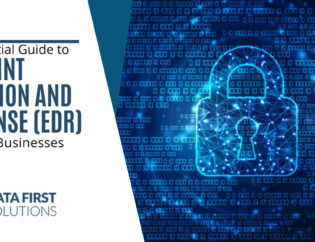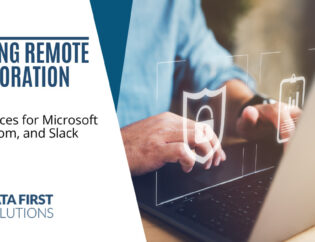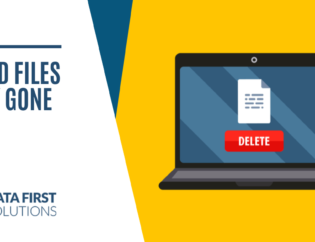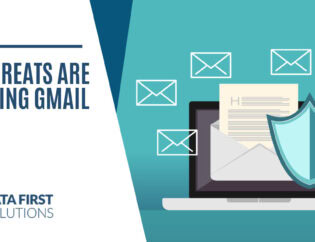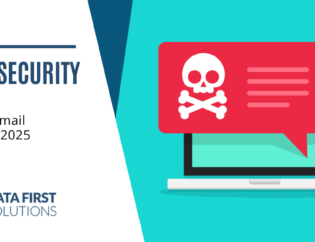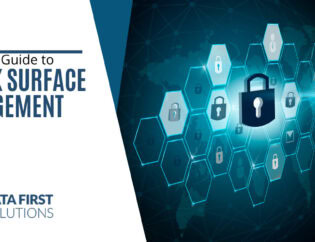
However, there is no such thing as “too small to hack” in the cybercriminal universe. Actually, it’s often easier to breach networks for smaller companies because they are more likely to lack basic cybersecurity hygiene, such as multi-factor authentication or properly protecting their network with a zero-trust strategy.
A hacker can spend a lot and time and resources trying to breach a well-protected enterprise network only to come away with nothing when in the same amount of time, they could breach several smaller companies and end up coming out ahead.
There was a 424% increase in cyberattacks against small businesses last year. This isn’t surprising when 33% of surveyed companies with 50 employees or fewer are using free consumer-grade security for their devices and network protection.
Why Do Hackers Want Our Data? We’re Just a Small Company?
Client Data Can Be Used Multiple Ways
The data you have on your clients is valuable to hackers. They can use this data to take out a business credit card or apply for a loan in a company’s name.
It can also be sold on the Dark Web, as is often done. This provides the hacker with a quick turnaround on the financial reward for the attack.
One other way that hackers can use client data is to launch a targeted phishing attack posing as your company. Email spoofing can be done to make it look like the email going to a client is from your company, and because the client recognizes the name, they’re much more likely to click on a phishing link.
Employee Data Can be Used for Identity Theft
Employee data can be stolen from your HR database and used for identity theft. Employers store sensitive data for employees that are needed for payroll, such as their tax details and bank account information for making automated deposits.
This information can earn a hacker big money when selling the data on the Dark Web or using it themselves for credit card fraud or other types of identity crimes.
To Send Targeted Phishing Emails
If a phishing attacker can get one of your employees to click on a fake login page for a service like Gmail or Microsoft 365, they can potentially take over that employee’s email account.
This type of hack, called Business Email Compromise (BEC), is on the rise and becoming quite lucrative for hackers. One of the most popular scams is to use that employee’s email address to send a request to other employees in the same company to purchase gift cards either for client or employee gifts.
The recipient often doesn’t suspect the email as phishing because it’s coming from their supervisor or colleague’s real business email address. Once the gift card numbers are sent, the hacker cashes them in or sells them.
People Can Now Make Money in a Cyberattack Without Needing Any Hacking Skills
One more reason that small businesses are at risk of having their data breached is that due to things like Ransomware as a Service (RaaS), people can launch a cyberattack without any coding or hacking skills needed.
RaaS works similar to SaaS (Software as a Service). People sign up and pay for hacking “kits” already put together for them with step-by-step instructions. These sites also have things like customer support and a help desk.
This has opened up floodgates for criminals of all types to try their hand at a ransomware score. Even a few thousand dollars from a small business is more than worth their investment.
Tricks Scammers Use to Get Users to Click on a Phishing Email
Scammers will use all types of tricks to fool users into clicking on phishing emails. This includes using real emails that are direct copies or those from a legitimate company. All they need to do is change a few links to turn a real email into a phishing scam.
Phishing links will usually lead to elaborate phishing websites that use modified domain names that look nearly like the real thing to trick you.
Urgency tactics are also often used, such as warning you that you’ll lose service or that something is wrong. For example, they may use something like:
“Hi Bill, The following bill is still outstanding and your service is about to be turned off. Please transfer the amount due to this bank routing number to avoid loss of service.”
This type of tactic often triggers an emotional response that can cause people to click before they think.
Is Your Small Business Properly Protected from Online Threats?
When is the last time your company had an IT security threat assessment? Data First Solutions can help your Toronto area business with an honest assessment of where your security stands and any vulnerabilities that are leaving you at risk.
Contact us today to book a free assessment. Call 416-412-0576 or book your assessment online.



